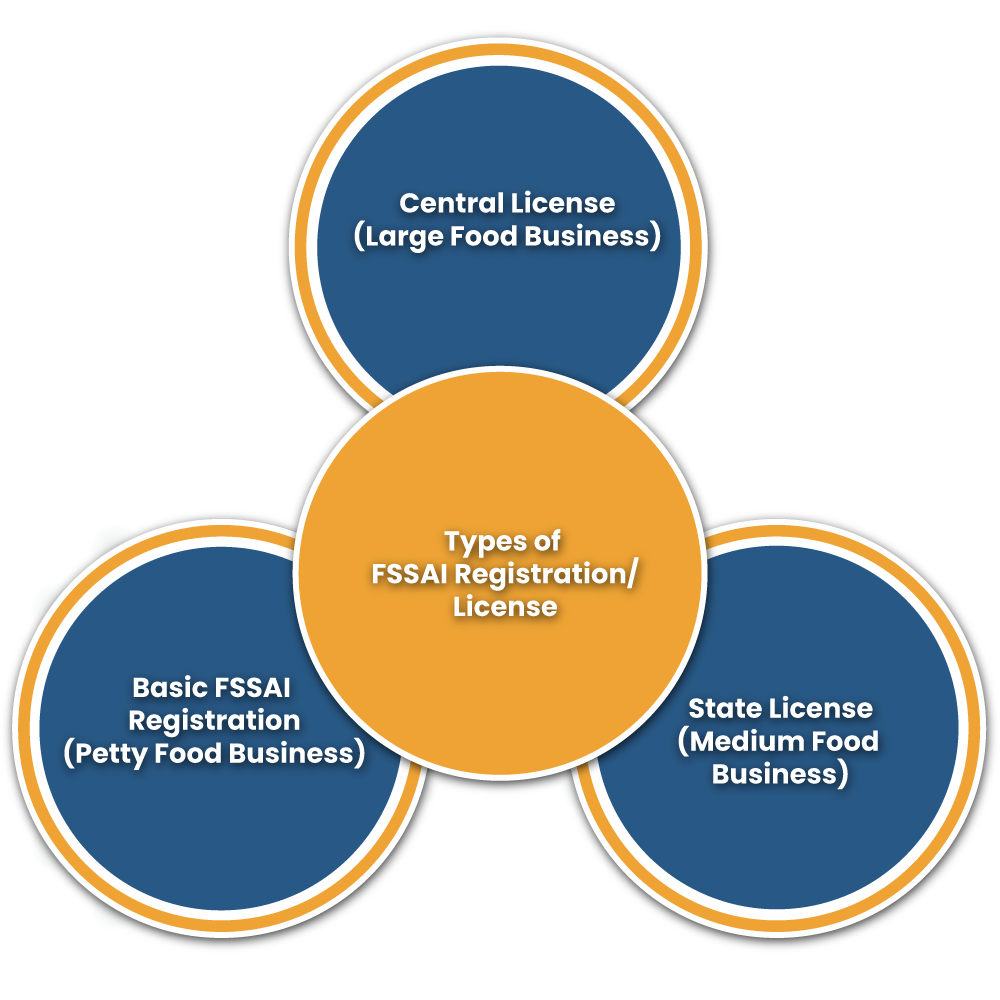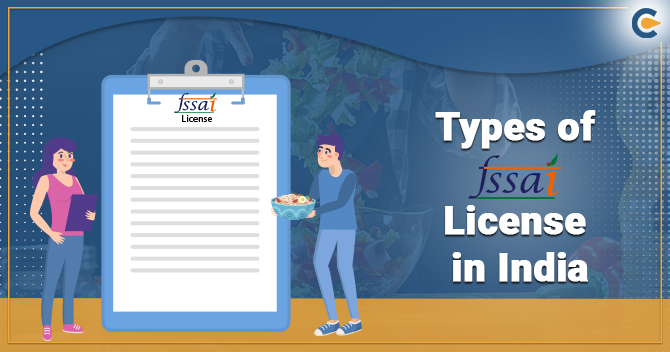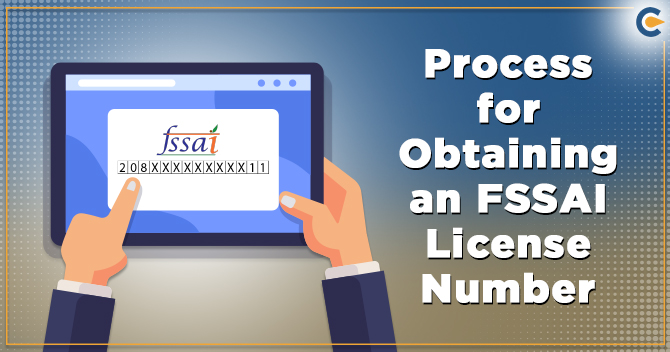FSSAI is an organization that controls and monitors food businesses in India. It has been established under the Ministry of Health & Family Welfare, Government of India. FSSAI Registration is different from the FSSAI License as it depends upon the size of the business. It contains 14 digit numbers which is printed on all the packages of food.
It gives authenticity for the quality of the food products and helps to gain customer trust in the products so that customers don’t hesitate at the time of purchasing the food products. It is mandatory to get FSSAI License for all the business operators in India such as food stores, traders, and manufacturers, etc. Scroll down to check more information regarding types of FSSAI License.
What are the Types of FSSAI License?
FSSAI License or registration is based on the premises and volume of the business. Depending upon the turnover, location, the capacity of the business, the applicant can get the license in different ways as mentioned below:


Basic FSSAI Registration
This is for the entity whose turnover does not increase 12 lakhs per annum. Hawkers and vendors come under this category.
FSSAI State License
This is for the entity whose turnover is not less than 12 lakhs and not more than 20 crores annually.
Central FSSAI License
This is for the entity whose turnover is more than 20 crores for producing, trading or storing the food products up to a specific limit prescribed by the law.
Who Requires FSSAI Registration in India?
Below are the lists of those who require a Food Registration to start a business in India:-
- Hotels and restaurants.
- Wholesaler.
- Dairy Shops.
- Food importers and food exporters.
- Suppliers of raw materials.
- Retailers who have a retail outlet.
- Transporters.
- Canteens or pantry in colleges, schools, corporations, government schools, and hospitals.
- Packaged food manufacturers.
- Processors such as dry fruit and pickle maker.
- Food chains.
Benefits of FSSAI Registration in India
The following are the benefits of FSSAI registration in India that help businesses to grow:
- It makes food manufacturing more trustworthy and reliable.
- Consumers widely recognize the FSSAI logo.
- When the registration is concerned, cleanliness and hygiene are regulated and followed.
- FSSAI license positively influences the production and dependability of the company.
- FSSAI license offers to produce a quality of food products as per the International Food Standards.
- FSSAI license is very important for exporting food products to other countries.
- It is also liable for setting procedures and guidelines for the attributed lab quality assurance as per ISO17025.
Documents Required for Different types of FSSAI License
The list of necessary documents required by different types of FSSAI License is as follows-
Documents required for Central FSSAI Registration in India
The list of documents necessary for the issuance of Central FSSAI License in India:
- Sources of various raw materials.
- PA/NOC document issued by FSSAI.
- Acquire a list of directors & partners depending on the type of business
- Acquire a copy of proof of profession such as rent agreement.
- Acquire a blueprint of the unit.
- Manufacture’s NOC and a copy of the license.
- List of food items.
- List of equipment and machinery used in the unit.
- Form IX.
- Duly signed Form B.
- Declaration Form.
- Certificate from Ministry of Commerce for 100% EOU.
- Bring a certificate from the Ministry of Tourism.
- Authority letter.
Documents Required for State FSSAI Registration in India
Following are the list of necessary documents required for the issuance of State FSSAI License in India:
- Rent agreement or any proof of ownership
- Partnership deed or affidavit of the owner.
- Acquire a list of directors & partners depending on the type of business.
- Acquire a blueprint of the unit.
- NOC from the manufacturer.
- List of food items.
- List of equipment and machinery utilised in the unit.
- Food Safety Management System Certificate.
- Duly signed Form B.
- Certificate of Food Safety Management System.
- Authority letter.
Some Additional Documents Required for the Manufactures
- Report on the water for pesticide residues.
- List of machinery & other equipments used in the unit.
- Acquire a list of food categories that are yet to be manufactured.
- Acquire a blueprint of the layout of the processing unit.
Process of FSSAI Registration in India
You can check the following step to complete the registration process in India:
Step 1
First, submit the application form (Form A) to the Food and Safety Department.
Step 2
Within 7 days, the application made by the applicant can be accepted or rejected by the Food and Safety Department[1].
Step 3
If the Department accepts the application, then they will issue a registration certificate along with the registration certificate number and applicant’s photo.
Step 4
During the working hours, FBO should display the registration certificate at the place of business.
Fees Associated with the Registration for FSSAI License in India
| Application Type (Fee for One Year) | Central License | State License | Registration |
| New Application | Rs. 7500/- | Depends on the scale of the business. | Rs. 100 |
| Renewal of Application | Rs. 7500/- | Depends on the scale of the business. | Rs. 100 |
| Modification of License/Certificate | Rs. 7500/- | Depends on the scale of the business. | Rs. 100 |
| Duplicate License / Certificate | 10% of the applicable fee | 10% of the applicable fee | 10% of the applicable fee |
What are the Penalties for Non-Compliance?
Following are the list of penalties for non-compliance:
| Particulars | Fines (INR) |
| Sub-standard food | Rs. 5 Lakh |
| Misbranded Food | Rs. 3 Lakh |
| False description of the product or any misleading advertisement | Rs. 10 Lakh |
| Inessential matter in food | Rs. 1 Lakh |
| Failure to obey with Food Safety officer director | Rs. 2 Lakh |
| Unhygienic manufacture | Rs. 1 Lakh |
| Food quality not in compliance with the Food Safety and Standards Act. | Rs. 2 Lakh (Petty manufacturer – Rs. 25,000/-) |
Conclusion
FSSAI License is very important for all types of food businesses in India, such as transporters, distributors, manufacturers or caterers, etc. FSSAI aims to reduce food adulteration and improve the accountability of manufacturers by issuing them a food license. The different types of FSSAI License provides the foods businesses in India to register themselves as per their requirements.
Read our article: Is it Possible to sell Food Grains and Edible Oil Online?










